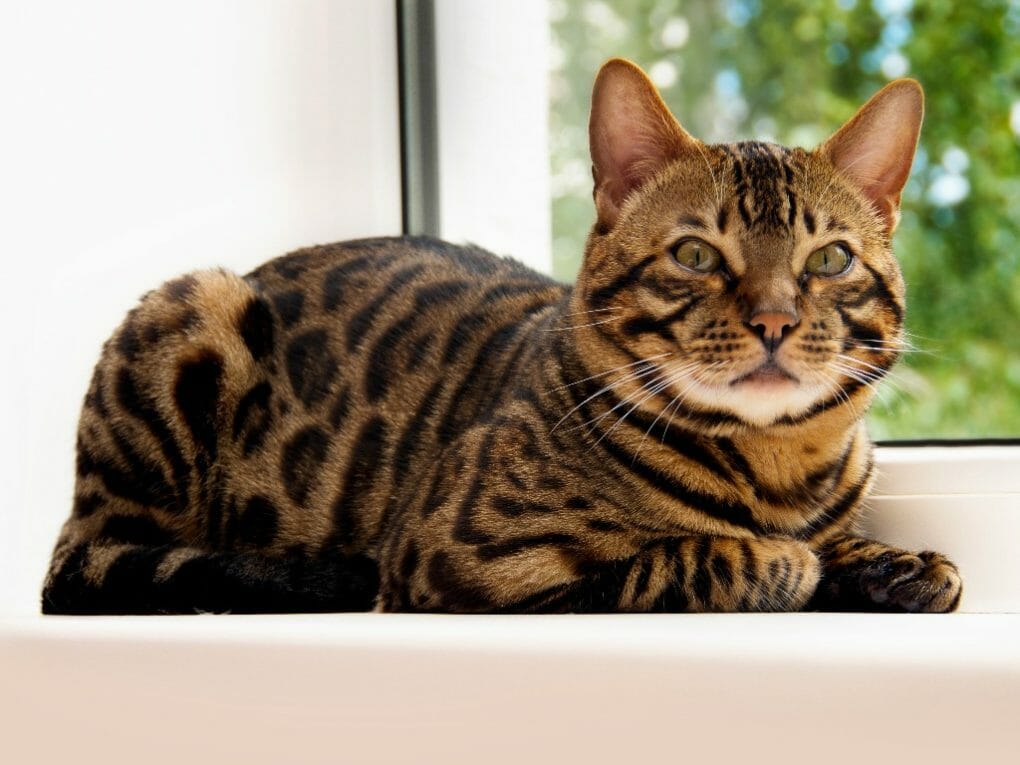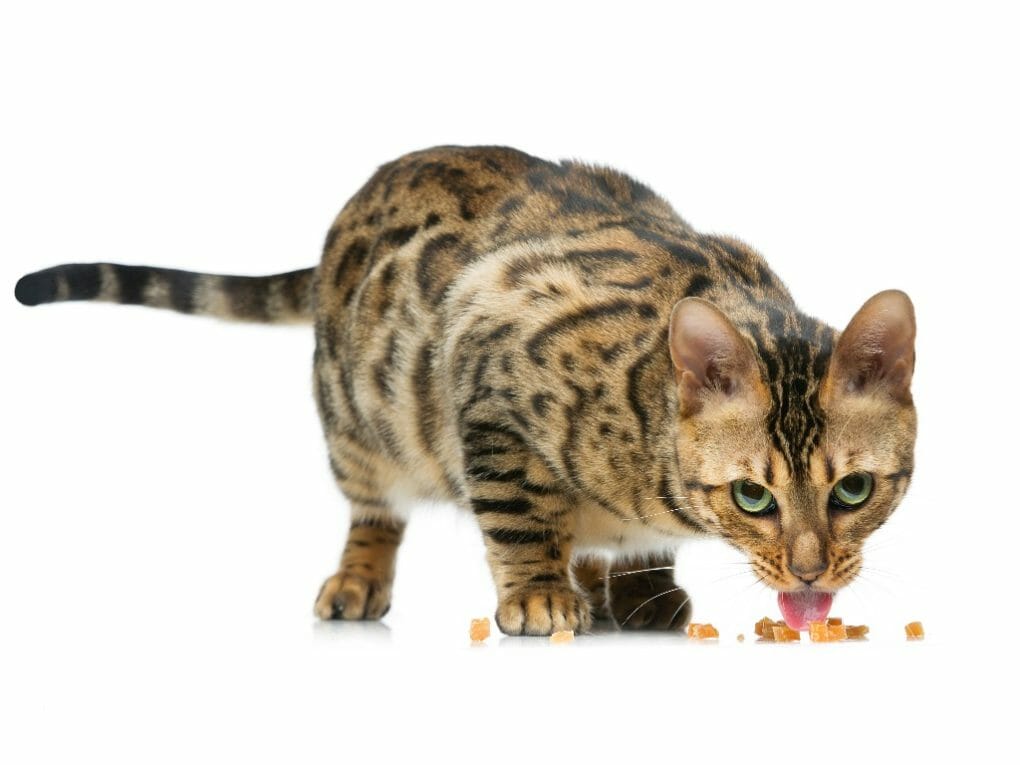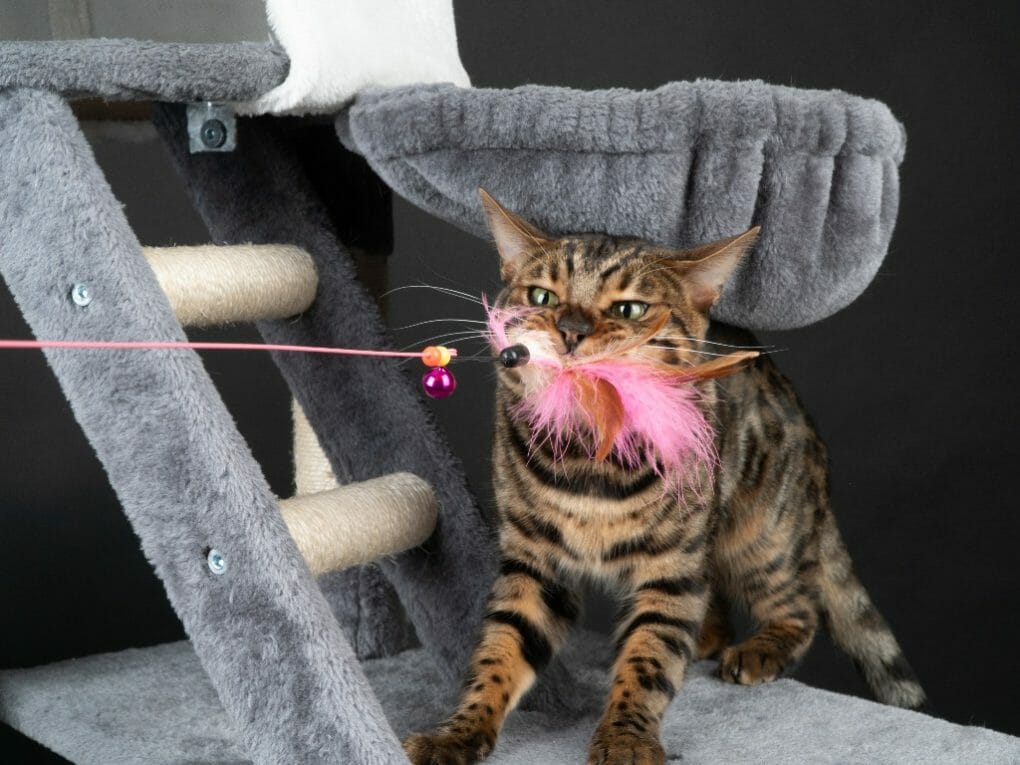Bengal Cat Lifespan: A Guide to Understanding Your Pet’s Life Expectancy and the Factors Affecting It
Bengal cats have a lifespan of around 12 to 16 years, longer than the average cat breed. The lifespan of a Bengal cat can vary depending on several factors, including its diet, exercise habits, and overall health.
Some Bengals may calm down with age, but this can vary depending on the individual cat. To help ensure that your cat lives a long and healthy life, it is crucial to provide them with proper nutrition, exercise, and medical care. This includes feeding them a high-quality diet, giving them plenty of opportunities for play and training, and ensuring they receive regular checkups and vaccinations from a veterinarian.


In addition to these primary care needs, keeping an eye on your Bengal cat for any signs of illness or distress is essential. If you notice any changes in your cat’s behavior, appetite, or overall health, consult a veterinarian as soon as possible. With proper care and attention, your pet can live a happy and healthy life for many years.
Table of Contents
The Lifespan of Bengal Cats
Indoor Cat
Indoor Bengals that are well-fed, exercised, and treated with love can live 12 to 16 years. However, health problems caused by a poor environment or improper diet can significantly shorten an indoor Bengal cat’s lifespan. Make sure to keep your cat healthy and enjoy their life by providing them with the right environment, food, and toys.
Outdoor Cat
Outdoor Bengal cats live between 10 and 15 years. Provide your outdoor pet with a healthy diet and plenty of exercises, and they’ll have a long and happy life!
What You Can Do to Ensure Your Bengal Cat Lives Longer
Like all cats, Bengal cats have their share of health problems. To ensure your Bengal cat lives as long as possible, provide good nutrition and plenty of exercise. Prevent health problems from developing in the first place by getting your cat vaccinated and having checkups scheduled regularly.
Be supportive when dealing with behavior issues, as patience is key. Keep up with routine care tasks like litter box cleaning, nail clipping, and bath time – they will help keep your Bengal cat healthy and happy!
Why Some Bengals Live Longer Than Others
Bengal cats are cat breeds that have a longer lifespan than others. This is due to various factors, one of which is their natural resistance to some diseases, and they also have a low risk of developing cancer, so their lifespan is extended.
Nutrition
A Bengal’s diet is of utmost importance. You need to feed them the right food to ensure they live a long life full of health and happiness! Like all cats, Bengals get meat, fish, and fresh fruits and vegetables – vital for their overall health and lifespan. They also have a low body fat percentage, making them healthy creatures overall!
One key factor in Bengal cats’ long life span is that they don’t usually suffer from many common feline diseases or problems such as obesity or diabetes – thanks to their healthy diet! So make sure you’re feeding your cat the best food possible so he can enjoy his long life fully!


Hydration
It is essential to hydrate your Bengals regularly as they are an extremely thirsty breed. Make sure you give them plenty of fresh water every day – even if they don’t drink out of the bowl.
In addition, they keep their food and water bowls clean so they don’t get sick from eating contaminated water. So regular exercise is also crucial for their lifespan – provide them with a play area to run around!
Enrichment and Exercise
Depending on their diet and lifestyle, Bengals certainly live up to their reputation as one of the longest-living cat breeds. That being said, ensure you provide them with a balanced and healthy life – including giving them enough enrichment and exercise!
Bengals tend to be very active cats, so providing them with toys and activities that keep them entertained will enrich their lives and help prevent boredom from turning into destructive behavior.
They require regular exercise to stay healthy and happy. Exercise can have a positive impact on their lifespan, as well as that of their owners. Appropriate activities for Bengals include playing fetch, going for walks, and participating in interactive playtime with other cats or dogs.
Catproof the House
Bengal cats are known for their high energy and playful nature and have a strong instinct to explore and play. To keep your Bengal cat safe and prevent accidents or injuries, it is essential to cat-proof your home by removing or securing any potential hazards.
Here are a few things you can do to cat-proof your home for a Bengal cat:
1. Keep toxic plants out of reach: Many common houseplants can be toxic to cats, so it is vital to keep them out of reach or remove them from home entirely.
2. Secure cords and cables: Bengal cats have the instinct to chew on cords and cables, which can be dangerous; consider using cord covers or tucking cords behind furniture to keep them out of reach.
3. Lock up household chemicals: Bengal cats may be attracted to the smell of household chemicals, so keeping them locked up and out of reach is vital.
4. Remove small objects: Small objects such as beads or buttons can be tempting for Bengal cats to play with, but they can also be dangerous if ingested. Keep small objects out of reach or put them away in a closed container.
5. Provide play opportunities: Bengal cats need plenty of mental and physical stimulation to stay happy and healthy. Ensure to provide your Bengal with plenty of toys and play opportunities, such as scratching posts and interactive toys.


By following these tips and keeping an eye out for potential hazards, you can help ensure that your Bengal cat stays safe and healthy in your home.
Dental Care
Dental care is integral to cat life, as Bengal cats have a long lifespan due to their healthy dental habits. Regular brushing can help keep your cat’s teeth clean and healthy – even in older cats!
Make sure to feed them a high-quality diet and give them dental chew toys so they get the exercise they need while keeping their teeth in good shape. And if there are any signs of oral health problems such as tooth decay or gingivitis, take appropriate action immediately.
Healthcare
Healthcare is an essential part of any cat’s life. This can extend their lifespan – research suggests that Bengal cats have lower body fat, making them harder against diseases and injuries.
Ensure you provide your Bengal cat with everything they need for healthy living – vaccinations are essential as they tend to be susceptible to some common viruses. Regular vet checkups are vital as problems can be treated before issues become serious.
Pollution or Environment
There is evidence that pollution affects the lifespan of Bengal cats. Pets who live in polluted areas tend to have shorter lives due to health concerns such as disease and shorter life spans.
Air pollution, water pollution, and noise pollution can all adversely affect a cat’s health and well-being.
Air pollution can affect a cat’s respiratory system, leading to respiratory problems such as coughing, sneezing, and difficulty breathing. It can also lead to an increased risk of cancer and other health problems.
Water pollution can affect a cat’s immune system and lead to various health problems, including gastrointestinal issues and skin irritation.
Noise pollution can stress out a cat, leading to behavioral problems such as excessive vocalization, hiding, or aggression. It can also lead to hearing loss and other health problems.
In addition to the direct effects on a cat’s health, pollution can also indirectly affect a cat’s well-being. For example, suppose a cat’s outdoor environment is polluted. In that case, it may not be able to enjoy the same physical activity or exploration as a cat in a cleaner environment.
It is essential to be aware of the potential impacts of pollution on your cat and to take steps to protect them from exposure to harmful substances. This may include keeping your cat indoors or providing a clean, safe outdoor space for them to enjoy.
